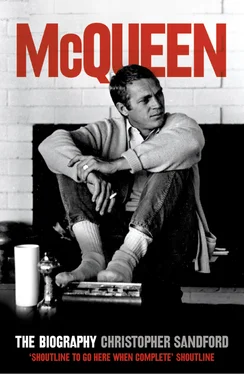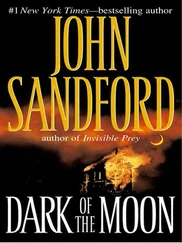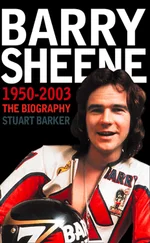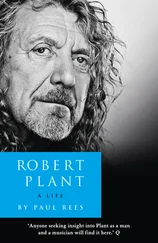1 ...7 8 9 11 12 13 ...33 One night in his tiny back bedroom, with the vermin grazing outside, Steve lay down to write a letter to Slater. It wasn’t the usual perfunctory note home of a young teenager and it turned into a long one, as there was real hell as well as news involved. His new stepfather, he told Uncle Claude, was a thug who regularly beat him up. Steve was torn between his desire to run and a strong, but not yet overpowering, urge to fight back. Surely his family would rescue him. Is that what they were? Yes, he decided, those were his loved ones back in Slater. ‘Tonite after supper’, the letter continued, ‘[Berri] came to my room when he was ripped and lit off on stuff that he yells at Ma and me about and which he’s crazy over. That is, me and Ma finding jobs. Says he will likely toss us out if we dont start work.’ Steve went on like this for three pages, all of them covered in his spidery, retarded scrawl, sloppy, verbose and misspelt, though with sudden and surprising jolts of insight. The very last word over the signature, and the keynote of his whole year in LA, read ‘Help’.
The letter never made it to Slater. Berri, now lacerated by ulcers as well as by failure, got up in the night and noticed the light from under Steve’s door. Grabbing the letter, he read the first line or two before tearing it in half. When Steve bent over to pick it up, he was kicked or at least swatted hard on the rear. Berri followed this up by threatening to brain him. Unscrewing the dim bulb overhead, he then left Steve alone in the dark, whimpering in long, shuddering sobs and vowing revenge.
‘Berri used his fists on me,’ McQueen said later. ‘He worked me over pretty good – and my mother didn’t lift a hand. She was weak…I had a lot of contempt for her. Lot of contempt.’ Unsurprisingly, he was soon back running with a gang of toughs and shoplifters who worked the area around the bottom end of Sunset Boulevard. On Christmas Eve Steve was booked for stealing hubcaps from cars parked in Lincoln Heights. Truancy officers from the Los Angeles school board also called. At this dire pass, Julian wrote Uncle Claude a letter of her own, telling him how bad the boy was, and that they were considering sending him to the reformatory. A month later Claude wired money for the bus fare back to Missouri.
It had changed in Steve’s absence. Now the trains hauled troops as well as cattle, and a local factory converted from shoe manufacturing blasted out parts for the B-29 bomber. On the farm, too, began a painful induction into the world of peers and rivals. Claude’s wife Eva had sent for her own child, Jackie, from St Louis. The teenage girl was a year older than Steve and, it seemed to him, was spared chores around the house as compensation for having been dumped. Though he began innocently dating another relative of Eva’s, Ginny Bowden, Jackie’s would duly be the ‘first cooze I ever saw’, ogled through the crack in her bedroom door. There was also a suspicion that the seventy-year-old Claude was more interested than was proper in his stepdaughter. It was now, too, that Steve’s widowed grandmother was hauled off to State Hospital One, as the local asylum was called. The last sight he ever had of her was of her being dragged, kicking and screaming, out of her room. They used a straitjacket on her; an experimental model, it dislocated one of Lil’s painfully thin shoulders. Steve stood in open-mouthed horror as the old woman whirled free, yelling in agony and biblical righteousness, before being muzzled and hauled off like a mad dog. Once in the ambulance, she became a muffled shade and disappeared.
Steve, for his part, enjoyed his freedom to go drinking, hunting, or cruising off on his red bike with the black-and-tan or his pet mouse. For an inquisitive boy, he did remarkably little reading; the business of showing up for eighth grade was so tedious and time-consuming that he never made more than a few stabs at it. He was a dab hand at story-telling, but that was his one and only accomplishment back at Orearville. Formal learning never mattered much to Steve, aka Buddy Berri. At the end of the summer term, after calmly informing his schoolmistress of his dream of becoming a movie idol, he ran down the seven steps onto Front Street, laid out his cap on the ground in front of him and began doing Bogart and Cagney impersonations. When the afternoon was over he’d collected a total of two dollars. Thrilled at his success, Steve rode his bike home to Thomson Lane, where he repeated his career plans to Claude and Eva. His great-uncle’s response was to let rip with a contemptuous belch from behind a gin bottle.
One evening Claude tore a strip off him after the law called yet again at the Thomson farm, this time in response to complaints that Steve had shot out a cafe window with his BB gun. After the shouting had died down, the fourteen-year-old took off into the night. By way of a travelling circus he grubbed his way back west, eventually reaching California. Steve never set foot in Slater again. For the rest of his short but active life he carefully avoided it. McQueen had mixed views about the place. On one level he clearly loathed it, running it down as a ‘sewer’ where he’d felt his welcome to be, at best, sketchy. On the other hand it was precisely in his retreat into the world of guns, engines and play-acting that he found his way in life. Keenly aware of his role as Hollywood’s misfit, he played the part with a flair that gave his performance that touch of genius. He made a whole career out of his rich source memory.
Most of his best films were attractive reflections of his own personality. Long before his fifteenth birthday, Steve knew what it was like to be dyslexic, deaf, illegitimate, backward, beaten, abused, deserted and raised Catholic in a Protestant heartland. He was the fatherless boy who was a hick in the city and a greaser back on the farm. Not surprisingly, nobody would do outcast roles better than he did. And to the bitter end: it was one of the weird paradoxes of McQueen’s cv that while everything got better, he experienced it as having worsened. Only a true depressive could complain as he did, while earning $12 million a film, of being ‘screwed blind’. After the Dickensian time he’d had of it, no one would ever blame McQueen for bitterly anticipating more ‘shit’ even as life, materially, turned up roses. They merely got used to it. Most sympathised with what Cagney would tartly call McQueen’s ‘clutching at the bars of his sanity’ in an ‘Alcatraz of self-loathing’. As a superstar, he maintained his old ways. At heart, Steve always saw himself as last in life’s queue, with few real options – or, in psychiatrists’ jargon, a touch of moral masochism – given the odds stacked up against him. A measure of his despair in 1944 was that, after quitting the circus, he soon thumbed his way back to his mother and stepfather in Los Angeles.
McQueen the film star would be a man alone – just as he’d once been a boy alone, hoboing his way across America or stealing out the window of the Berris’ shack to duck another beating. If, in the end, he was a loner by choice, nature and circumstance did their worst to set him on the path. ‘He once told me he’d wanted to murder his folks,’ says Toni Gahl. ‘He’d actually stood in their doorway with a butcher knife, it was that close. And you know he could have done it. You know it.’
According to her, ‘Steve always said Berri ran that family like his own Stalag Luft III. Living with him was like being a POW, only most POWs don’t get the crap kicked out of them every day for no good reason, and they also ate better.’ As the quietest and one of the smallest, wearing rags and usually sporting a thick lip, Steve knew what it was like to be given hell at school, too. He solved the problem by rarely turning up there. Most days he was out on the verminous streets around Silver Lake, up by the reservoir, resuming his old trade in hubcaps and food stamps. In January 1945 he was brought in front of a judge after being involved in a violent street brawl. Steve’s age saved him from the lockup that time.
Читать дальше












